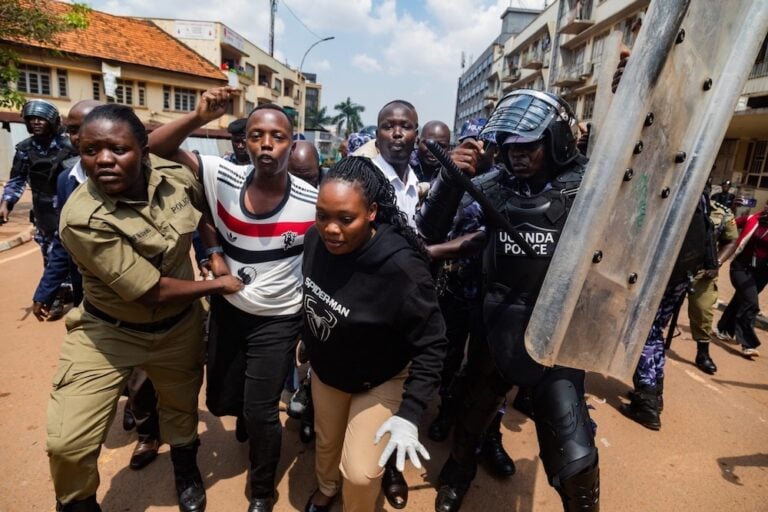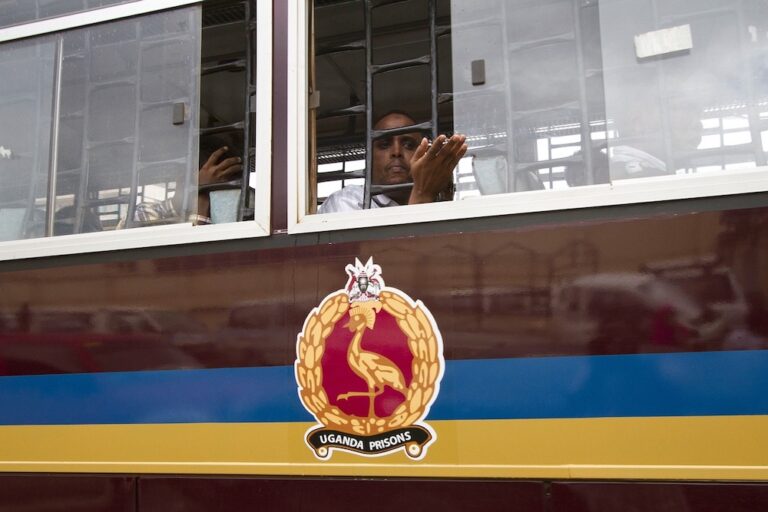Arrests follow the publication of an article claiming Ugandan President was plotting against Rwandan counterpart Paul Kagame.
UPDATE: On 27 November 2017, the Buganda Road Court charged the Red Pepper editors and directors with seven counts including libel and offensive communication (HRNJ-Uganda).
This statement was originally published on rsf.org on 23 November 2017.
Reporters Without Borders (RSF) calls for the immediate release of eight senior employees of the Kampala-based Red Pepper tabloid, arrested on 21 November, and for the reopening of the newspaper, which was closed the same day.
The eight employees arrested during an anti-terrorist police raid on Red Pepper’s headquarters were directors Patrick Mugumya, Arinaitwe Rugyendo, James Mujuni and Johnson Musinguzi Byarabaha, financial manager Richard Tusiime and editors Ben Byarabaha, Richard Kintu and Tumusiime Francis Tinywana.
According to police sources, they are being held at Nalufenya detention centre in Jinja, a city 85 km east of Kampala. The centre is known for the use of brutal interrogation methods. They are said to be accused of endangering state security but the charges have not yet been confirmed.
The arrests were prompted by a 20 November article headlined M7 plots to remove Kagame, which claimed that Ugandan President Yoweri Museveni (nicknamed “M7”) was plotting against his Rwandan counterpart, Paul Kagame. According to local sources, Red Pepper took the article from a Rwandan online newspaper without verifying the information.
‘This kind of reaction by the authorities is completely disproportionate,” RSF said. “Charging journalists with endangering security because of an article? Sending anti-terrorist police to a newspaper? What is the Museveni government afraid of? We call on the authorities to free the arrested journalists at once, and to allow the newspaper to resume operating freely, in accordance with Uganda’s laws.”
The raid began when the anti-terrorist police arrived at Red Pepper’s headquarters with a search warrant and surrounded the building. In the course of the search, they examined all the computers and electronic equipment and other documents used by the newspaper’s journalists.
Referring to the newspaper’s headquarters as a “crime scene,” police spokesman Emilian Kayima said it was closed “until further notice.”
The Ugandan government has of late taken several measures to restrict media freedom and intimidate journalists. This has included banning live transmission of parliamentary debates and interrogating newspaper publishers.
Uganda is ranked 112th out of 180 countries in RSF’s World Press Freedom Index.



